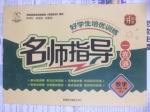题目内容
【题目】A
Want a glance of the future of health care? Take a look at the way the various networks of people about patient care are being connected to one another,and how this new connectivity is being used to deliver medicine to the patient — no matter where he or she may be.
Online doctors offering advice based on normal symptoms (症状) are the most obvious example. Increasingly,however,remote diagnosis (远程诊断) will be based on real physiological data (生理数据) from the actual patient. A group from the University of Kentucky has shown that by using personal data assistance plus a mobile phone,it is perfectly practical to send a patient's important signs over the telephone. With this kind of equipment,the cry asking whether there was a doctor in the house could well be a thing of the past.
Other medical technology groups are working on applying telemedicine to rural care. And at least one team wants to use telemedicine as a tool for disaster need — especially after earthquakes. On the whole,the trend is towards providing global access to medical data and experts' opinions.
But there is one problem.Bandwidth (宽带) is the limiting factor for sending complex (复杂的) medical pictures around the world — CT photos being one of the biggest bandwidth users. Communication satellites may be able to deal with the shortterm needs during disasters such as earthquakes or wars. But medicine is looking towards both the secondgeneration Internet and thirdgeneration mobile phones for the future of remote medical service.
Doctors have met todiscuss computerbased tools for medical diagnosis, training and telemedicine. With the falling price of broadband communications,the new technologies should start a new time when telemedicine and sharing of medical information,experts' opinions and diagnosis are common.
【1】The writer chiefly talks about______.
A.the use of telemedicine
B.the online doctors
C.medical care and treatment
D.communication improvement
【2】The basis of remote diagnosis will be______.
A.personal data assistance
B.some words of patient
C.real physiological information
D.medical pictures from the Internet
【3】The underlined word “problem” in the fourth paragraph refers to the fact that______.
A.bandwidth isn't big enough to send complex medical pictures
B.the secondgeneration Internet has not become popular yet
C.communication satellites can only deal with shortterm needs
D.there is not enough equipment for spreading the medical care
【4】Why will broadcast communications become cheaper in the future?
A.Because the government will offer larger part of the money.
B.Because the price of medicines in the future will fall.
C.Because a newer method of communications will replace it.
D.Because the price of broadband communications will fall.
【答案】
【1】A
【2】C
【3】A
【4】D
【解析】
【语篇解读】本文是一篇科普说明文。介绍的是通过远程医疗的应用发展未来的医疗事业。
【1】主旨大意题。本文主要讨论的是远程医疗的应用而不只是包括“在线医生”。
【2】细节理解题。根据文章第二段中的“...remote diagnosis(远程诊断)will be based on real physiological data(生理数据)from the actual patient.”分析判断,远程诊断依据的是病人的真实的生理数据。
【3】信息指代题。根据文中第四段的“Bandwidth(宽带)is the limiting factor for sending complex(复杂的)medical pictures around the world...”可知,制约远程医疗的因素是宽带不足以传送复杂的医学图像。
【4】细节理解题。根据文章最后一段中的“With the falling price of broadband...of medical information...”可知正确答案。

 名师指导一卷通系列答案
名师指导一卷通系列答案